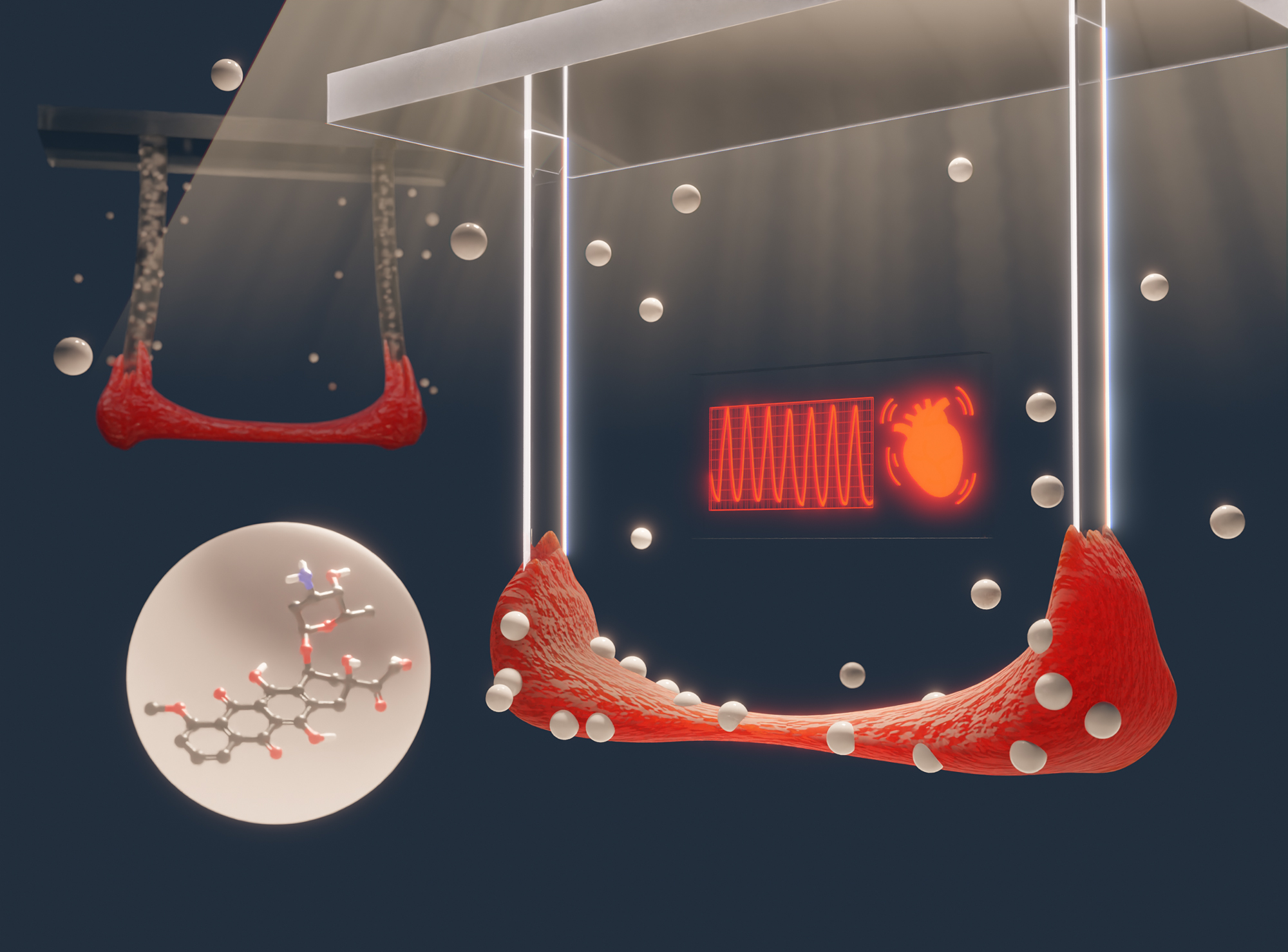
News & Events
News & Events
News
June 05, 2025
Transforming engineered heart tissues for precise drug testing
Many drugs fail in clinical trials due to discrepancies between pre-clinical and clinical outcome, often stemming from the inability of animal models to replicate human biological responses accurately. Instead, to overcome this challenge, EHTs derived from human induced pluripotent stem cell cardiomyocytes (hiPSC-CMs) have been increasingly utilized to model cardiac diseases and test candidate drugs. However, while polydimethylsiloxane (PDMS) is favored for its flexibility and biocompatibility, its high absorptive property significantly distorts pharmacodynamic assessments. To address this, the researchers developed a PS-based EHT device with dramatically lower compound absorption. Although PS is inherently stiffer than PDMS, this limitation was overcome by engineering flexible, thin film-based pillars with optimized tip geometry that accommodate contractile forces and enhance tissue retention during fabrication, resulting in a high overall success rate for generating functional EHTs.
Complementing the hardware, the team also developed an automated analysis program to track pillar displacement from video recordings, enabling unbiased quantification of contractile function. This program calculates parameters such as contractile force by analyzing the distances between peaks and troughs in contraction waveforms, thus eliminating the variability typically encountered with manual measurements. As expected, mature EHTs generated on the PS platform displayed significantly higher contractile force, enhanced calcium handling, and increased mitochondrial activity compared to their immature counterparts—clear indicators of successful tissue maturation and functional improvement.
To evaluate the platform's ability to mirror real-world drug responses, the research team applied several well-characterized drugs to the EHTs. Despite distinct mechanisms of action—blebbistatin acting as a myosin II inhibitor and diltiazem functioning as a calcium channel blocker—the new PS-based EHT platform revealed comparable reductions in the durations of contraction and relaxation for both drugs. By contrast, in experiments with doxorubicin, a known cardiotoxic agent, a marked decrease in contractile force was observed without an accompanying change in contraction or relaxation kinetics, suggesting that doxorubicin's effects are mediated by cytotoxic mechanisms such as mitochondrial dysfunction and DNA damage rather than by directly impairing contractile function.
When directly compared to PDMS-based devices, the PS-based platform's low absorption property proved crucial: it allowed for accurate detection of doxorubicin-induced cardiotoxicity even at low concentrations, while PDMS's high absorption masked these effects. Crucially, the PS material did not alter the composition of the culture medium or interfere with the cellular maturation process, affirming its potential reliability for pharmacologic and toxicologic testing.
This innovative PS-based EHT platform—integrated with an automated analysis program that precisely quantifies drug effects in vitro—represents a significant advance in cardiac drug testing. By overcoming material-related challenges, the researchers have developed a reliable method for predicting human heart tissue responses while reducing reliance on traditional animal models, ultimately accelerating the development of safer, more effective therapies.

A rendering of engineered heart tissues
Paper Details
- Journal: Lab on a Chip
- Title: A polystyrene-film-based device for engineered cardiac tissues enables accurate analysis of drug response on contractile properties.
- Authors:
Yuya Fujiwara1,2*, Masako Sasaki1,2, Sohei Funaoka3, Takuro, Yoshikuni3, Yuki Naka1,2, Kazumi Ida1,2, Taichi Aihara3, Shunsuke Funakoshi1,2, Kenichi Imahashi2,4, Yoshinori Yoshida1,2*
*: Corresponding authors - Author Affiliations:
- Center for iPS Cells Research and Application (CiRA), Kyoto University
- Takeda-CiRA Joint Program
- Sumitomo Bakelite Company Limited
- Target Validation Sciences, Takeda Pharmaceutical Company Limited






















